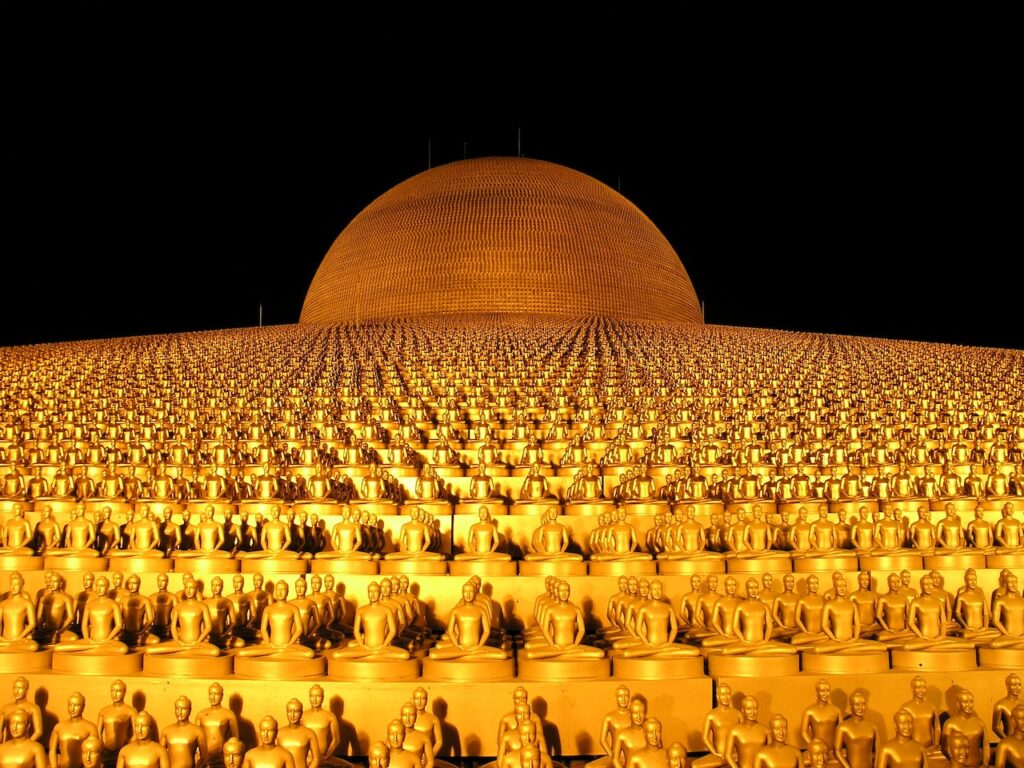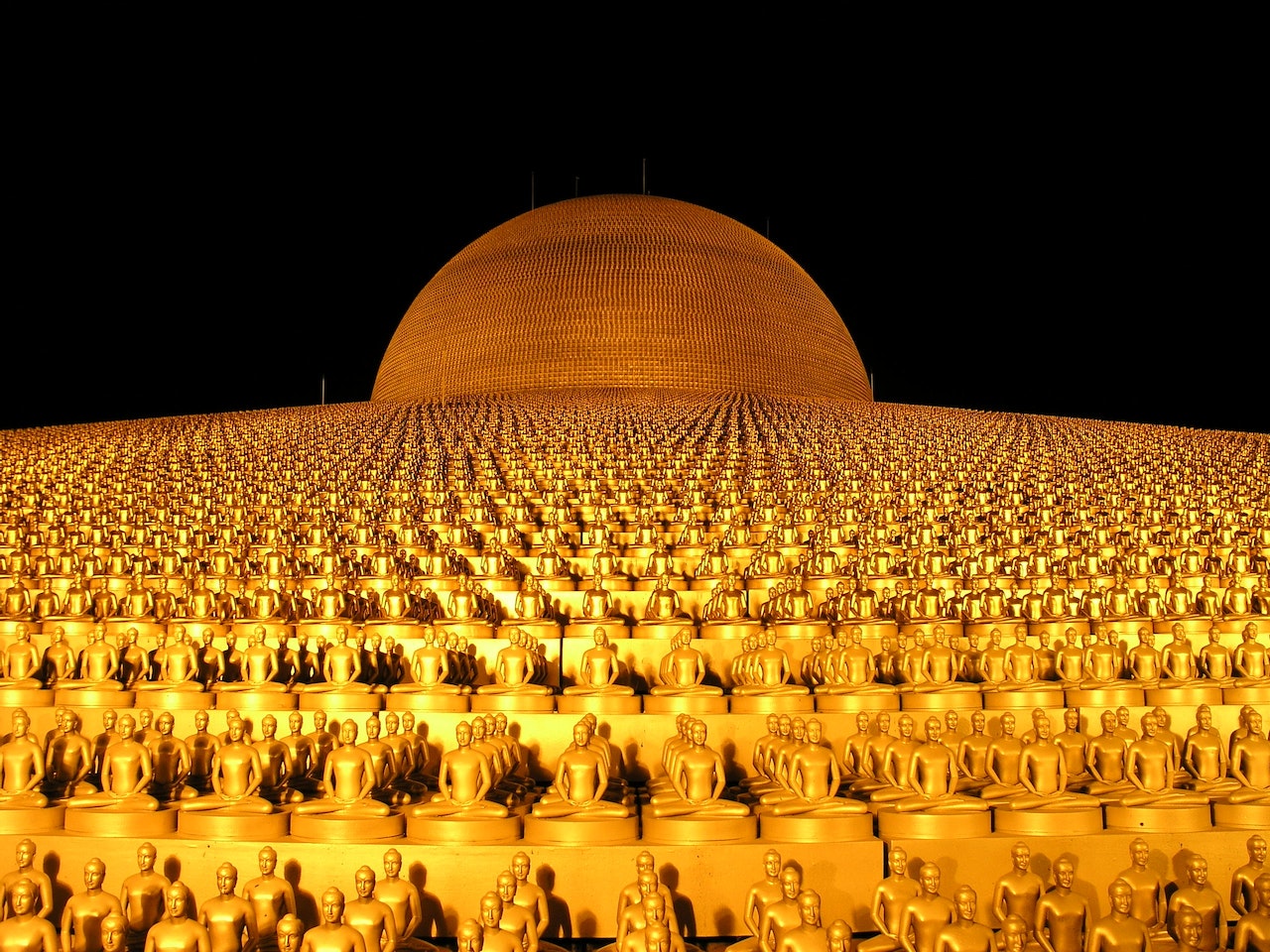Sex tourism industry.
People use such words to talk about Thai sex tourism.
For Western men with average incomes, it is not cheap to take a week or two long vacation from Europe or America to Thailand. So what makes Thailand an attractive tourist destination? The answer is sex tourism. It is a real capitalist industry, based on the bodies of Thai women. It includes the Thai government, transnational travel agencies and tour operators, multinational hotel and restaurant chains, international airlines. All are involved in promoting this lucrative industry worth billions of US dollars each year.

Buddhism is the state religion, but Thailand has the most vibrant sex tourism industry in Asia.
The question is: Why has Thailand, a Buddhist country with more than 3,000 temples, become a center of international prostitution?
The answer is complex. It includes both internal and external factors. What the media mentions and ignores.
External causes
The US has built Thailand into a military base since the Vietnam War. Sexual services for US soldiers were an important project that the US did in Thailand, called R&R. This created the premise for sex tourism to develop in Thailand later.
Internal causes
History of slavery & patriarchal culture
Thailand is a country with slavery. In which, the value of women is very low compared to men. This has created conditions for slave brothels to operate in Thailand since very early in ancient dynasties. By 1909, Thailand abolished slavery. As a result, these female slaves would participate in prostitution.
The religion of Thailand is Buddhism. But it is deeply influenced by Hinduism and Brahmanism with the ideology of male superiority over female. In fact, although the country has many temples, Thai Buddhists are imbued with very little Buddhist philosophy. Buddhism in Thailand is only for men. Women are considered not to have the good karma to be ordained to attend a retreat. When a man comes of age, attending a retreat is considered a mark of maturity and social prestige. It is what he does to show filial piety to his parents with the meaning: to accumulate merit for his parents. Thai women are not allowed to do that and they are expected to repay their parents through economic support. These are direct trade or labor jobs, and are considered inferior to men. Even when women have been allowed to participate in political positions, their presence is very insignificant. In the workplace, women’s income is always lower than men’s.
Government
The North and Northeast regions of Thailand are the poorest in Thailand. The government deliberately maintains policies that make access to education difficult. Agriculture is underdeveloped, there is no government support, and there are no preferential loans.
Thai women have few options to fulfill their filial duty. One is to work in industrial factories with cheap labor and almost no benefits. These are policies to keep labor cheap and women will quit before the age of 30. The other is to migrate to Bangkok and join the sex industry with less pressure and better pay.
Here they face the fear of going with strangers. A white guy or a Japanese guy and not knowing what they will do to themselves. The government and the police force do not legalize prostitution. They do not allow bars to operate prostitution on site, but turn a blind eye to the bars charging tourists a small fee (200 baht) to take the girls out. In return they get protection money from the bars.
In the North, where moral and cultural standards are more relaxed, a girl returns with beautiful clothes, a nice house for her parents, money to buy seeds and pay for her younger brother’s education. Her merit will cover up the source of the money. Many girls return and actively become recruiters in their hometowns. Many companies come and offer loans to families in exchange for their daughters joining the industry. Many parents are fooled into believing that their daughters will get good jobs. But many parents sell their daughters to these pimps or sex workers.
Western media blames America for making prostitution popular here. But they don’t mention that this is a real industry, the main product is the body and the services that Thai girls provide. The profits from tourism, airlines, hotels, restaurants, and brokers flow into the pockets of capitalists and the government.
Thai men
Another factor that the media has not mentioned is Thai men. Historically, the culture in the North and Northeast of Thailand has been to punish men for inappropriate sexual behavior with money. This is no different than allowing men to have sex outside of marriage and paying for it with money. A form of prostitution.
What percentage of Thai men use prostitution regularly and irregularly? Big figures like 84% are given to counter Western criticism that they brought prostitution to Thailand and corrupted the country. But we need to ask: How can a country allow women to use prostitution as an economic pillar, when the men of that country do not agree?
In addition to female prostitution, there is also a significant number of male prostitutes. Cultural products that are brought to the public emphasize that it is homosexual male prostitution. Is it because when men engage in prostitution, it is sensitive and considered inferior, so the investigation becomes difficult? In reality, there are many male prostitutes who have female clients.
Conclusion
The reasons why Thai women enter prostitution are complex. Even the voices of these women themselves are absent. In surveys and interviews, their words are always reported through the words of the author or reporter. At the same time, the opinions of male sex workers are absent.
However, it is not beyond the following factors.
The historical and religious context is unfavorable to Thai women and normalizes prostitution. The obligations that Thai women have to shoulder, combined with the economic and educational imbalance between urban and rural areas, leave them with few options. The government has introduced policies to indirectly maintain the prostitution industry, considering it a driving force to attract capital. Domestic and foreign capitalist organizations actively invest and promote it to gain profits.

